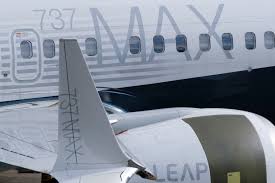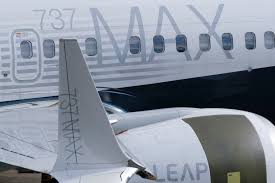
Two fatal crashes of the Boeing's 737 Max 8 aircraft in a space of four months has resulted in an increasing number of countries either grounding to banning the use of the crafts. This has put the US plane maker Boeing under significant pressure for the first time since the issues it had about the batteries of the 787 Dreamliner.
There is a growing crisis of confidence in Boeing's 737 Max 8 aircraft across the globe and regulators and airlines - from Asia to South America, deciding to negate all chances of another crash by grounding the crafts since the Ethiopian crash, despite assurances from the US aviation regulator about the airworthiness of the jet.
Temporary suspension for flying the 737 Max within its airspace was ordered by Australia – following the footsteps of Singapore. That meant that after Asia's second-busiest international airport – Singapore, is not out of bounds for the craft – which was slated to become the workhorse and cashcow for airlines. Earlier, airlines and regulators ordered grounding of the jets in Brazil – for its low-cost carrier GOL, Grupo Aeromexico and Aerolineas Argentinas. The first ones to ground the craft were China, Indonesia and Ethiopia. Max 8 jets have alos been grounded by Cayman Airways, South Africa's Comair Airways and South Korea's Eastar Jet.
The jet has also been ordered to be grounded by the UK Civil Aviation Authority and none of those crafts would be allowed to enter or flyover UK airspace, according to reports.
There are concerns over the jet’s functioning because of the similarities between the Ethiopian crash and the Indonesia's Lion Air crash that took place four months ago into the Java sea. The 737 Max 8 model was involved in both the incidents and there are questions about the safety of the jets being raised by travellers – refistering their concerns on social media.
On its part, Boeing has said that software updates to its 737 Max would be introduced by it within weeks. This announcement came soon after the comment by the US aviation regulator about mandating Boeing to put in place design changes in the crafts by April this year.
Boeing said in a statement that it had been working on enhancement of a flight-control software for the 737 Max to “make an already safe aircraft even safer”. This has been going on for a number of months after the Lion Air crash in October. Investigations into the Indonesian Lion Air crash revealed that just before the crash, the pilot of the plane had been fighting off what is known as the anti-stall system of the craft, which forces the nose of the plane down towards the ground because of erroneous data. Attempts by the pilot to pull the aircraft up failed resulting in the crash. The answer to the problem had been subsequently issued by Boeing.
“Boeing has been working closely with the Federal Aviation Administration on development, planning and certification of the software enhancement, and it will be deployed across the 737 Max fleet in the coming weeks,” the company said.
(Source:www.thenational.ae)
There is a growing crisis of confidence in Boeing's 737 Max 8 aircraft across the globe and regulators and airlines - from Asia to South America, deciding to negate all chances of another crash by grounding the crafts since the Ethiopian crash, despite assurances from the US aviation regulator about the airworthiness of the jet.
Temporary suspension for flying the 737 Max within its airspace was ordered by Australia – following the footsteps of Singapore. That meant that after Asia's second-busiest international airport – Singapore, is not out of bounds for the craft – which was slated to become the workhorse and cashcow for airlines. Earlier, airlines and regulators ordered grounding of the jets in Brazil – for its low-cost carrier GOL, Grupo Aeromexico and Aerolineas Argentinas. The first ones to ground the craft were China, Indonesia and Ethiopia. Max 8 jets have alos been grounded by Cayman Airways, South Africa's Comair Airways and South Korea's Eastar Jet.
The jet has also been ordered to be grounded by the UK Civil Aviation Authority and none of those crafts would be allowed to enter or flyover UK airspace, according to reports.
There are concerns over the jet’s functioning because of the similarities between the Ethiopian crash and the Indonesia's Lion Air crash that took place four months ago into the Java sea. The 737 Max 8 model was involved in both the incidents and there are questions about the safety of the jets being raised by travellers – refistering their concerns on social media.
On its part, Boeing has said that software updates to its 737 Max would be introduced by it within weeks. This announcement came soon after the comment by the US aviation regulator about mandating Boeing to put in place design changes in the crafts by April this year.
Boeing said in a statement that it had been working on enhancement of a flight-control software for the 737 Max to “make an already safe aircraft even safer”. This has been going on for a number of months after the Lion Air crash in October. Investigations into the Indonesian Lion Air crash revealed that just before the crash, the pilot of the plane had been fighting off what is known as the anti-stall system of the craft, which forces the nose of the plane down towards the ground because of erroneous data. Attempts by the pilot to pull the aircraft up failed resulting in the crash. The answer to the problem had been subsequently issued by Boeing.
“Boeing has been working closely with the Federal Aviation Administration on development, planning and certification of the software enhancement, and it will be deployed across the 737 Max fleet in the coming weeks,” the company said.
(Source:www.thenational.ae)














